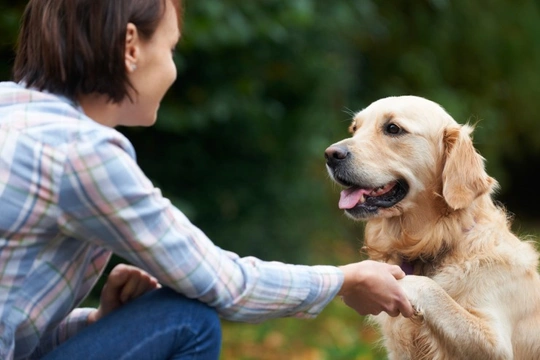
Are you a well-trained dog owner?
When it comes to training and managing your dog, there are a virtually limitless number of different schools of thought, training manuals and different techniques available, and everyone thinks that the one that they subscribe to is the right one or the best one, regardless of what it is!
However, while everyone agrees that dogs should be trained properly and obedient, much less is written about the importance of training the owner too, because unless the owner or handler that is training the dog is competent, adaptive and consistent, it is impossible to produce a well-trained and obedient dog!
When a person runs into training problems and challenges with their dogs, often it is actually the owner or handler that is causing the problem, due to either a lack of knowledge or consistency, or simply not recognising an issue in the making before it has become quite pronounced. This is why it is really important to ensure that as the owner of a dog and someone that is therefore responsible for training and managing your own dog, you yourself are well-trained, and able to recognise your own limitations.
In this article, we will look at some of the most important factors to take into consideration when training and managing your own dog, and how to spot an issue and deal with it if it arises. Read on to learn more about how to tell whether or not you are a well-trained dog owner!
Consistency
The key to successful dog training is consistency, which means that you have to make firm rules about what your dog is and is not allowed to do and how they should behave, and stick to them! Allowing your dog to get on the sofa one day and then telling them off for it the next is confusing for your dog, who will not know what is expected of them, and so, will not know how to reliably comply.
The same goes for command compliance and your dog-you should ensure that they always comply with your commands and persevere until they do, not just let things go if your dog does not respond first time!
Identifying problems
Being able to critically review your dog’s training and management and identify any weak spots is another essential, as if you cannot spot a problem in the making, you will not be able to sort it out!
This means reviewing and appraising your training techniques and what your dog is capable of regularly, to ensure that you always stay ahead of the game.
Understanding your dog’s responses
Training can be complicated when things don’t go to plan, and being able to understand what is going on with your own dog is the key to achieving a successful result. If your dog is not listening to you or is refusing to obey a command, is this because your dog is being wilful, or because they don’t understand what you want, or are failing due to a lack of consistency? Being able to tell and tackle the answer is the key to successful training.
Appropriate control
Your dog should be under proper control at all times, whether this be on or off the lead. Your dog should come when called, stop what they are doing if you ask them to, and know not to go rushing up to strange people or jump up to say hello.
If your dog is slightly unruly or is apt to run off or jump up at people, this is a flaw that you must be able to recognise and tackle!
Ongoing progress
One common mistake many dog owners make when it comes to training their dogs is to teach them the core basic commands and then consider the work to be over, and fail to appreciate that training is an ongoing, lifelong process!
If you do not repeat and refresh your dog’s commands regularly then they are apt to forget them, and if your dog is intelligent and receptive to learning like the Labrador retriever or the German shepherd, you should keep working with them and teaching them new skills for as long as they are able!
Good manners
Teaching your dog good manners is an integral part of training your dog, and not only will instilling good manners into your dog make them more pleasant to be around, but it can help to ensure compliance and responsiveness with your other training commands as well!
Learning to recognise the often subtle manifestations of bad manners in the dog, such as pushing past you to get through a door, begging at the table or pulling on the lead is important, as is knowing how and why you must tackle these problems and work to improve your dog’s skills and behaviour!
Socialisation
All dogs should be well socialised with both other dogs and people, and your dog’s first year of life is the most important time when it comes to teaching them about appropriate behaviour around others, how to read the signals that other dogs and people are giving to them, and how to play nicely and get on!
If your dog is too boisterous or does not play well with others, or if they are not open and friendly when passing strangers, these are all important skills that you will need to work on with your dog, as this is all part of essential dog training too!



